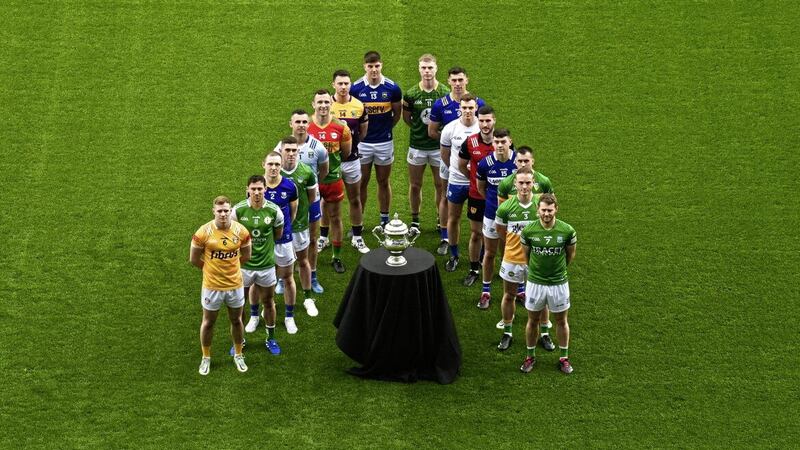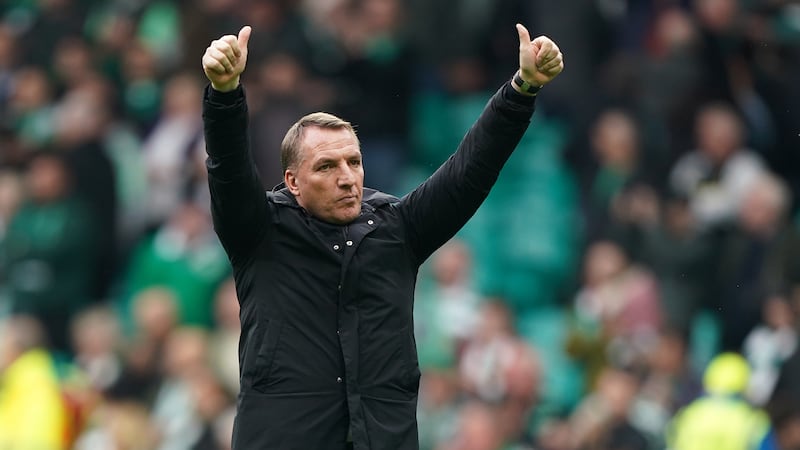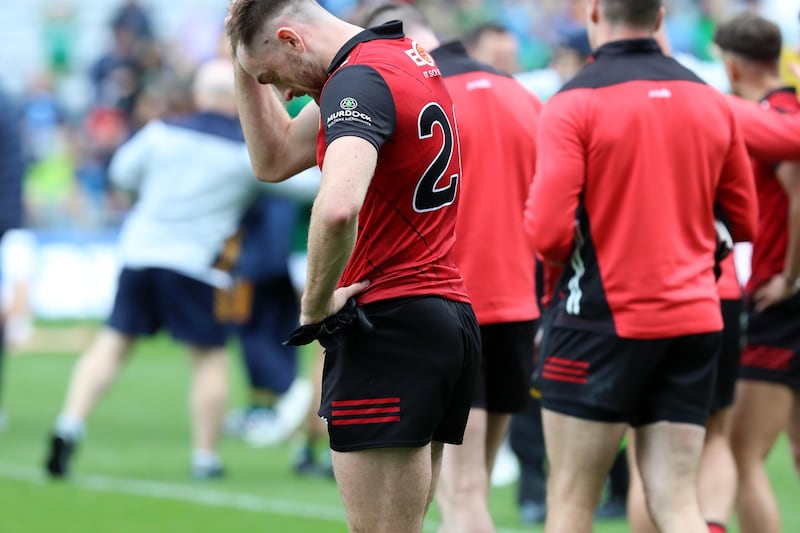THERE was a fair bit of outrage when Donal Og Cusack called the Tailteann Cup “a sort of Gaelic football Grand National for disappointed also-rans” last week, with Colm O’Rourke and Pat Spillane both hitting back at the RTÉ hurling pundit.
The Sunday Game Live presenter Joanne Cantwell also challenged Cusack (right) on his comments but the former Cork goalkeeper sidestepped his way out of an apology.
RTÉ were in Thurles to broadcast the Tipperary v Limerick Munster SHC clash, which followed the Tipp footballers losing their Tailteann Cup match against Down by 18 points.
The previous week Down beat Waterford by 11 points for a 29-point scoring difference after just two games.
It is too early to say if this competition will be a success – one completed year in a different format is not long enough.
After two games Waterford have a scoring difference of minus-20, while Tipp’s is minus-29, yet one of these counties will qualify for the knock-out stages.
If the Tailteann Cup was established to provide more quality games to all counties, perhaps teams like Tipp and Waterford didn't receive the memo.
It is hard to believe that Tipp enjoyed such a successful season just three years ago, when they won the Munster title and progressed to the All-Ireland semi-final.
That was the first year of Covid, when an old-fashioned Championship with no back doors or second chances was played, and there was much to be said of a straight knock-out competition.
The question must also be asked of ambitious teams like Down, Cavan, Antrim and Meath who will no doubt be in the shake-up for the last four in the Tailteann Cup – what would winning it mean for them?
Would a proud footballing county such as Meath even celebrate?
Yes, it gives guaranteed entry to the Sam Maguire the following year but players could retire by the time Championship football returns the following season, or emigrate, or move into a job which makes county commitment impossible.
While the new group stages for the Sam Maguire competition should provide closer, more competitive games, it will be important to keep an open mind and not apply a one-size-fits all approach to the Tailteann Cup.
I would not discount the merit in running off the Tailteann Cup much quicker than the Sam Maguire, in order to facilitate the Tailteann Cup winner’s entry into the main Championship in the same season.
Are quarter-finals really of much benefit in the Tailteann Cup
anyway, given how results are going? The carrot of immediate entry into the Sam Maguire may be much more of an incentive for teams rather than having to wait 12 months.
I just think that the Tailteann Cup is eventually going to go the same way as the Tommy Murphy Cup before it.
The attendances aren’t much to shout about either with Down’s support for the home clash with Waterford a fraction of crowds that attended their Donegal and Armagh Ulster Championship games.
Perhaps this reflects a generally apathetic attitude many fans out there – not just in Down – have to anything other than Sam Maguire football.
If we are honest, no county wants to be competing for secondary cups. Players operating in an elite environment, such as inter-county football and hurling, dream much bigger and are motivated by beating the bigger teams.
Donal Og Cusack could have chosen his words better when the described the Tailteann Cup as a competition for “also-rans”. Colm called it “hurling snobbery” and he was correct.
However, Meath, Down and Cavan to name a few, have rich history and pride in Sam Maguire Championship football and supporters will not accept Tailteann Cup football, and that’s unlikely to change.
Call it arrogance if you want, but Donal Og Cusack said nothing that hasn’t been said in Down or Meath or Cavan this season. He just said it differently.
////////////////////////////////////////////
Tyrone’s clash with Galway on Saturday evening was highly competitive and at times end-to-end stuff.
Referee David Gough is one of the most prominent in the Association and has been entrusted with several high-profile matches, but there was plenty to question in his performance at Pearse Stadium.
That doesn’t include the biggest decision of the day – to send off Tyrone’s Frank Burns for his head-high challenge on Jack Glynn.
Burns obviously intended to hit the Galway man hard, but perhaps got his timing and position all wrong. I have seen yellow cards given for the same challenge, but reds too. It could have gone either way.
However, in many other instances I could not figure out why certain frees were awarded by Gough sides.
Both sets of players were affected by some very questionable decisions.
Gaelic football is a contact sport and I would not want to see it become any less so due to over-sensitive officiating.
Players have a responsibility to eradicate feigning head injuries – we used to call this ‘cheating’ by the way – and it is the responsibility of the referee to see this for what it is.
It was well-publicised that David Coldrick failed the pre-season referee fitness test, due to injury, and would not officiate in the Championship.
In many instances referees are not fit enough to keep up with the pace of the modern game which, being fair to them, is a tough ask with fitness levels so high across the board.
Constantly tinkering with the rules doesn’t help the referees’ cause either.
It is a thankless task and I recognise that our games couldn’t function without them.
The GAA needs to introduce a second referee to reduce the pressure on one official.
Like players, referees can lose form for whatever reason and Gough, Coldrick and every ref are no less human in how they perform than the players themselves.
In a game of small margins, if officiating isn’t up to standard then it needs to addressed by the GAA.
Burying your head in the sand and hoping it blows over until the next game is never a good policy.







